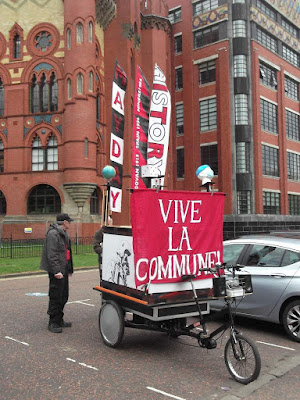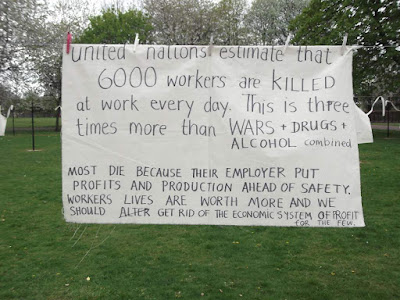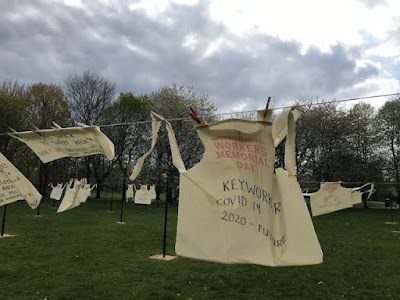Your lords and masters are telling you to get back to work, the parasite class need you. Of course they will tell you that your boss will put in place safety measure for your protection. One of those protections may be compulsory wearing of face masks. Sounds all well and good, but under certain working conditions the wearing of face masks could be contributing to your own death. I for one, with chronic restrictive airways disease, would be reluctant to wear a face mask under certain conditions. Working conditions and the environment you work in are just as important as wearing a face mask, but face masks are cheaper.
If the conditions you are working under are not right, face masks are a danger. Strenuous work, poor ventilation and too hot an environment make face masks a real danger. Fight for these conditions to be remedied before you return to work with your face mask.

Poland. A few days ago, in an Amazon warehouse near Poznań (Poland), one of the workers died of a heart attack during a night shift. Other employees associate this death with hypoxia and heat – the obligation to wear face masks at work.
Originally published by Indymedia NL.
People find it harder to breathe in masks and hence – work harder. Employees wear face masks for up to 10 hours a day. They cannot take them off, because they face the consequences – says Maria Malinowska from the Employee Initiative Inicjatywa Pracownicza IP at Amazon in Sady near Poznań.
Two years earlier, the Labor Inspectorate was to carry out research on the energy expenditure of Amazon employees near Poznań. According to trade union reports, some departments came across very large exceedances. – Despite this, Amazon has not reduced standards.
According to Radio Poznań, one of the employees of the magazine said: “Many of us complain about hypoxia. However, we do not take off the masks, because there are threatening reprimands and sanctions. “
Initially, Amazon, despite the virus threat, did not provide employees with masks at all. After detecting COVID-19 infection in the company’s warehouse near Łódź, carrying them during work became mandatory.
OZZ Inicjatywa Pracownicza (warning Facebook Link), May 23, 2020

Visit ann arky's home at
https://radicalglasgow.me.uk





















































